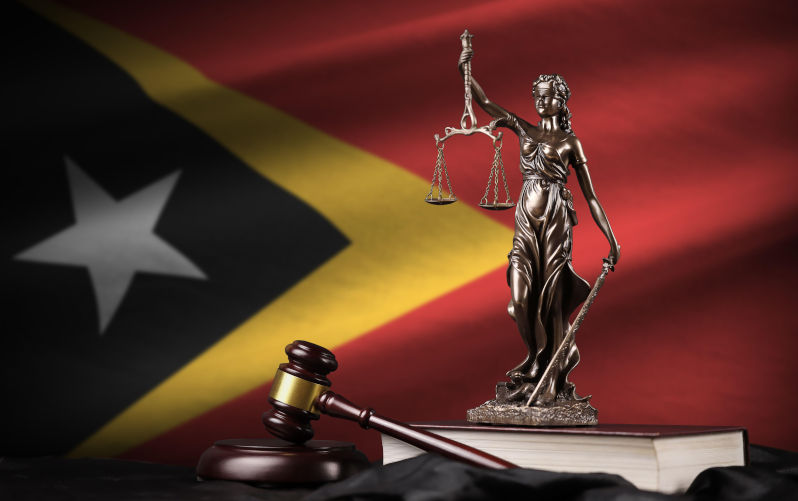Independence of Timor-Leste judiciary undermined; Doubts continue for Greater Sunrise
May 27, 2025
The government of Timor-Leste has attracted international media attention because of the proposal to pardon a notorious paedophile prisoner, defrocked Catholic priest Richard Daschbach, four years into his 12-year sentence.
The outcry from Daschbach’s victims struck a chord with the Timorese people and President José Ramos-Horta retreated on 20 May, with no pardons taking place. But it appears to be just a delay.
This event illustrates a deeper problem for the Gusmão Government, which appears directionless. Its grand vision for a petrochemical industry on the south coast, the Tasi Mane Project, has hit a major roadblock in efforts to develop the Greater Sunrise gas fields in the Timor Sea.
Judicial controversy
It took only two weeks after the national Parliament of Timor-Leste amended the Law on Judicial Organisation on 16 April for Ramos-Horta to appoint a junior judge to head the Court of Appeal. Judge Afonso Carmona was sworn in on 29 April for four years as president of the Court of Appeal at the Nicolau Lobato Presidential Palace. Judge Carmona is allegedly a close ally of Prime Minister Kay Rala Gusmão.
The Court of Appeal has initiated action against Ramos-Horta over this appointment.
In the general debate on the amendment of the Law on Judicial Organisation, Fretilin MP Nurima Alkatiri argued: “The crucial point of this proposal is the change in the criteria for appointing the president of the Court of Appeal, allowing lower-ranking judges to apply for the position. This change, although presented as technical, is in fact a subversion of the principle of merit, judicial hierarchy and the independence of the courts.
“It is a move to pave the way for the appointment of a politically aligned figure to lead the highest body of the Timorese judiciary.”
Alkatiri explained: “This proposal blatantly violates the Constitution of the Democratic Republic of Timor-Leste, namely Articles 124(3), 163, and 164(2), which enshrine the independence of the courts, the status of magistrates, and the organisation of the judicial system.”
Article 124(3) is interpreted together with the powers of the Superior Council for the Judiciary (Article 128), which provides that the president of the Supreme Court must be appointed by the president of the Republic from among their peers — that is, from among the judges of the Supreme Court. Since the Supreme Court is yet to be created, the highest court in Timor-Leste is the Court of Appeal. The president of the Republic may only appoint the president of the Court of Appeal from among the judges of the Court of Appeal.
Despite this constitutional argument, the amendment was passed with 39 votes in favour, 18 against and one abstention. It was only the Fretilin MPs who opposed the amendment.
Judge Afonso Carmona previously served as judge administrator of several Courts of First Instance, including in Baucau and Dili. He was not a member of the Court of Appeal.
The Constitution provides for a Supreme Court of Justice, but since the restoration of independence in 2002, this court has not been established. Article 164(2) states that until the Supreme Court is installed, all powers that the Constitution grants to the Supreme Court are exercised by the highest judicial authority, which is the Court of Appeal. Since 2002 the appointment of the president of the Appeal Court has always followed the constitutional mechanism for appointing the president of the Supreme Court.
The recent amendment of the Judicial Organisation Law obliges the president of the Republic to appoint a judge with at least 20 years of professional experience. According to meeting minutes published in the Jornal da República (official gazette of the State), Judge Afonso Carmona became a judge in 2009. This means that his experience as a judge is less than that required by law. However, a government statement on 7 May asserts that Judge Carmona is the most experienced judicial personality.
Fretilin alleged that Gusmão has refused to install the Supreme Court of Justice and blocked the recruitment process for new judges, leaving the system overburdened and unable to respond to the needs of the people.
“It is an attempt at institutional revenge, a settling of scores with a judicial system that, in the past, demonstrated courage and independence,” said Alkatiri.
Greater Sunrise stays stalled
The Gusmão Government continues to press for development of the Greater Sunrise gas fields to rescue the country’s longer-term financial viability. Timor-Leste owns 56.6% of the joint venture, Woodside 33.4% and Osaka Gas 10%.
Under pressure from Gusmão, the Sunrise Joint Venture completed a Concept Study Report at the end of 2024 into the viability of landing the gas for processing on the south coast of Timor-Leste. Woodside’s 2024 Annual Report said: “This study incorporated previous work related to Sunrise by utilising the latest technologies (where relevant) and cost estimates, while considering the socioeconomic, capacity building, safety, environmental, strategic and security benefits across potential development pathways. The Sunrise Joint Venture participants are reviewing the outcomes of the Concept Study Report and discussing next steps.”
Portuguese media Lusa reported that the study came out in favour of a pipeline to the Timorese coast. But clearly, Woodside does not agree. Talks between the companies and the governments of Timor-Leste and Australia on a Production Sharing Contract are also taking a long time to conclude.
Ramos-Horta has threatened Woodside and the Australian Government that Timor-Leste could turn to China’s Sinopec to develop the field and land the gas in Timor-Leste, but most recently in February 2025 he has said he would prefer Australia to develop the field.
The views expressed in this article may or may not reflect those of Pearls and Irritations.


